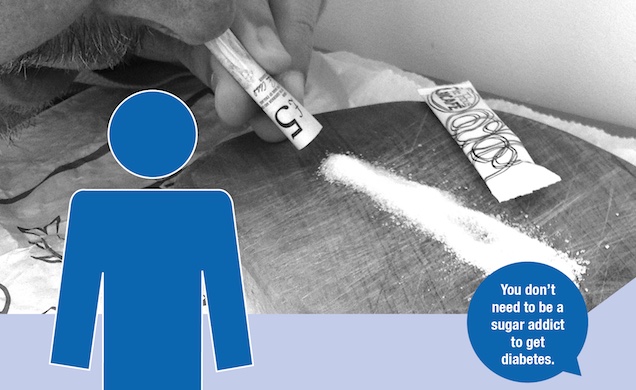Diabetes FAQs

About 4.6 million people in the UK are living with diabetes and around 12.3 million are at increased risk of it.
There are two main types of diabetes: type 1 which you can't avoid and type 2 which you can. These FAQs will be particularly useful for people who have been told they at risk of type 2 or have been recently diagnosed.
Are these FAQs for men with diabetes or not?
Both. It’s increasingly clear there is no hard line between having diabetes and not having it. The the way we live today is putting most of us at risk. In 2015, Diabetes UK warned that the condition could ‘bankrupt the NHS’. It makes sense for all of us to understand the basics.
What’s more, the best advice on diet and exercise is much the same whether you are trying to avoid diabetes or already have it.
What is diabetes?
Diabetes is a condition that causes your blood sugar level to become too high.
Great. But what does that mean?
Our bodies convert food into energy. The main source of this energy is a sugar - glucose - which is created when food is digested. It enters the bloodstream – where we call it blood sugar – and fuels the body’s cells.
But this doesn’t happen automatically. We need the hormone insulin to allow glucose into the cells. Insulin is created in the pancreas, an organ that sits behind the stomach. It senses how much glucose has entered your blood and releases the right amount of insulin. If you have diabetes, this process doesn’t work.
How many types of diabetes are there?
If your pancreas can’t make any insulin at all this is called type 1 diabetes.
If your pancreas produces some, but not enough, insulin, or your body’s cells are unable to react to the insulin produced, it is called type 2.
Usually people with type 1 are diagnosed younger and need to take replacement insulin for the rest of their lives.
Usually people with type 2 are diagnosed as adults and can improve their blood sugar control with diet.
But it’s not always as simple as that. There are people with type 1 diagnosed later in life. This more slowly progressing form of type 1 is known as LADA (latent autoimmune diabetes of adulthood). There are others who seem to have both type 1 and type 2 characteristics. More recently, scientists think there may be more sub-divisions of the the two main types.
Loads of famous people have diabetes.
Is it really that serious?
Both types of diabetes are serious. They can damage the heart, eyes, feet and kidneys and shorten lives.
The fact that some people live very well with it and even pursue sporting or other high-profile careers doesn’t prove diabetes isn’t serious. It proves that if you take it seriously, you can live with diabetes. But it’s still much better to do what you can to avoid it in the first place.
What are the symptoms of diabetes?
- feeling very thirsty
- peeing more than usual, especially at night
- feeling very tired
- weight loss and loss of muscle
- frequent itching around the penis or even thrush
- cuts or wounds healing more slowly
- blurred vision
- unexplained weight-loss
You should see your GP if you are experiencing several of these together. Type 1 diabetes can appear within days.
How is diabetes diagnosed?
Glucose can be detected in urine but for a proper diagnosis you’ll need a blood test. You may need to have a fasting test (usually you can’t eat for 8-10 hours before the test). Exactly what happens will depend on your symptoms.
Sometimes, diabetes is discovered when a person is having a test for something else.
What are the long-term complications of diabetes?
Raised blood sugar levels can damage:
- the arteries - increasing the risk of high blood pressure, heart disease and stroke (by up to five times)
- the nerves - which can lead to numbness and pins and needles
- the feet - people with diabetes are over 20 times more likely to have a lower limb amputation, so look after your feet, wear shoes that fit properly and get your feet checked every year by a trained professional like an NHS podiatrist
- the blood vessels in the eyes - causing vision problems (people with diabetes should get an eye test every year)
- the blood vessels in the kidney - which can lead to kidney failure
- sexual function (causing erection problems and loss of interest).
Diabetes may also increase the risk of depression, dementia and cancer.
Don’t underestimate diabetes. As well as the impact on your quality of life, it can shorten it.
Is diabetes my fault?
You can't do anything about type 1 diabetes. It's just the luck of the draw.
You can reduce your risk of type 2 but it's not your fault if you do develop it. There is evidence that our risk of type 2 diabetes may be traced back to the genetic variants introduced when modern humans interbred with naenderthals 40-80,000 years ago – so that's definitely not your fault.
We're all born different and, if you need medical help for diabetes, you have a right to it.
| This content is wholly based on the Men's Health Forum's Diabetes For Men which was prepared in line with the NHS England Information Standard of which the MHF is a member. Follow the links for more information or to buy copies. |
Who else can help?
Watch our diabetes slideshow
Note: this slideshow was made in 2013 so some of it may be out of date.
We don't currently post comments online but are always keen to hear your feedback.
Date published
08/04/14
Date of last review
02/08/18
Date of next review
02/08/21
|
The Men’s Health Forum need your support It’s tough for men to ask for help but if you don’t ask when you need it, things generally only get worse. So we’re asking. In the UK, one man in five dies before the age of 65. If we had health policies and services that better reflected the needs of the whole population, it might not be like that. But it is. Policies and services and indeed men have been like this for a long time and they don’t change overnight just because we want them to. It’s true that the UK’s men don’t have it bad compared to some other groups. We’re not asking you to ‘feel sorry’ for men or put them first. We’re talking here about something more complicated, something that falls outside the traditional charity fund-raising model of ‘doing something for those less fortunate than ourselves’. That model raises money but it seldom changes much. We’re talking about changing the way we look at the world. There is nothing inevitable about premature male death. Services accessible to all, a population better informed. These would benefit everyone - rich and poor, young and old, male and female - and that’s what we’re campaigning for. We’re not asking you to look at images of pity, we’re just asking you to look around at the society you live in, at the men you know and at the families with sons, fathers and grandads missing. Here’s our fund-raising page - please chip in if you can. |



